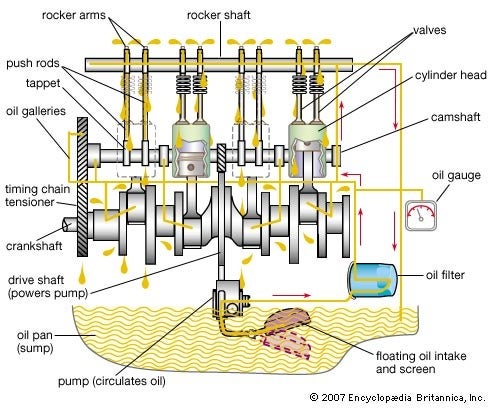When it comes to the maintenance of vehicles, engine oil plays a crucial role in ensuring the smooth functioning of the engine. But is engine oil a lubricant? Let’s dive into this question and understand the relationship between engine oil and lubrication.

Credit: www.wolflubes.com
Understanding Engine Oil
Engine oil, also known as motor oil, is a specially formulated lubricant that is designed to minimize friction and wear between the moving parts of an engine. It is a vital component for the proper functioning and longevity of an internal combustion engine. Engine oil is responsible for lubricating, cooling, cleaning, and protecting the engine’s components against corrosion.
Engine Oil as a Lubricant
Yes, engine oil is indeed a lubricant. Its primary function is to lubricate the engine parts that are constantly subjected to friction, which is the primary cause of wear on engine components. By creating a protective layer between moving parts, engine oil reduces friction, heat, and wear, thus ensuring the smooth operation of the engine. Details
Differences between Engine Oil and Lubricant
While engine oil is a type of lubricant, it’s important to note that not all lubricants are specifically designed for use in engines. The term “lubricant” is a general term used to describe oil-based substances that various mechanical equipment requires to function effectively. Engine oil, on the other hand, is specifically formulated to meet the unique demands of internal combustion engines.
Functions of Engine Oil as a Lubricant
Engine oil performs several essential functions as a lubricant:
- Lubrication: The primary role of engine oil is to lubricate the moving parts of the engine, reducing friction and wear.
- Cooling: Engine oil helps in dissipating heat generated by the engine, thus preventing overheating.
- Cleaning: It carries away contaminants and deposits, keeping the engine clean and free from sludge buildup.
- Protection against corrosion: Engine oil forms a protective barrier against corrosion, preserving the longevity of engine components.
- Sealing: It helps in sealing the gaps between components, preventing leaks and maintaining proper pressure.

Credit: www.machinerylubrication.com
Can Engine Oil Be Used as a General Lubricant?
While engine oil is specifically designed for use in internal combustion engines, it may not be suitable for all types of mechanical equipment. Different machines and components may require specific types of lubricants based on their operating conditions, temperatures, and load-bearing capacities. It’s essential to use the right lubricant for each application to ensure optimal performance and longevity of the equipment.
Choosing the Right Lubricant
For non-engine applications, a wide range of lubricants is available, including gear oils, hydraulic oils, compressor oils, and specialty industrial lubricants. These lubricants are formulated to meet the specific requirements of different types of machinery and equipment. When selecting a lubricant, factors such as operating temperature, load-bearing capacity, and environmental conditions should be taken into consideration to ensure proper lubrication and protection.
Conclusion
Engine oil is indeed a lubricant, specifically designed to meet the unique demands of internal combustion engines. Its role in lubricating, cooling, and protecting the engine’s moving parts is indispensable for ensuring the smooth and efficient operation of the vehicle. While engine oil serves as a lubricant for internal combustion engines, it’s important to use the appropriate lubricants for other types of machinery and equipment to ensure optimal performance and longevity.
Understanding the role of engine oil as a lubricant is crucial for the maintenance and longevity of vehicles and machinery. By choosing the right lubricants for different applications, one can ensure the smooth and efficient operation of mechanical equipment and prevent premature wear and damage.
